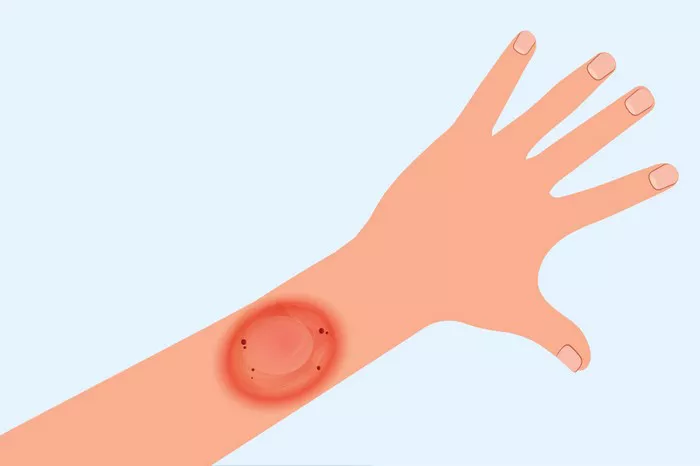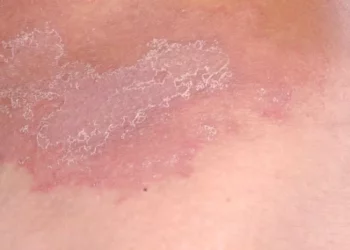Ringworm, despite its name, is not caused by a worm but by a fungus that infects the skin, scalp, and nails. It’s a common misconception that ringworm is only transmitted through direct contact with an infected person or animal. However, the fungal spores can also linger on surfaces, leading to potential transmission through contact with contaminated objects. In the quest to prevent and treat ringworm, many wonder if disinfectant sprays are effective in killing the fungus. In this article, we’ll explore the efficacy of disinfectant sprays in combating ringworm and debunk common myths surrounding this topic.
Understanding Ringworm: Causes and Transmission
Before delving into the effectiveness of disinfectant sprays, it’s crucial to understand the nature of ringworm. Ringworm is caused by various fungi belonging to the dermatophyte group, including Trichophyton, Microsporum, and Epidermophyton species. These fungi thrive in warm, moist environments and can infect the skin, scalp, and nails of humans and animals.
Ringworm is highly contagious and can spread through direct skin-to-skin contact with an infected individual or animal. Additionally, the fungal spores can survive on surfaces such as clothing, towels, bedding, combs, and brushes, making indirect transmission possible.
The Role of Disinfectant Sprays
Disinfectant sprays are commonly used to eliminate pathogens, including bacteria, viruses, and fungi, from various surfaces. These sprays typically contain active ingredients such as alcohol, hydrogen peroxide, quaternary ammonium compounds, or chlorine compounds, which are known for their antimicrobial properties.
When it comes to ringworm, the effectiveness of disinfectant sprays depends on several factors, including the type of disinfectant used, the concentration of the active ingredient, the contact time, and the surface being treated. While some disinfectants may be effective against ringworm, others may not adequately eliminate the fungal spores.
Choosing the Right Disinfectant
Not all disinfectants are created equal, and not all are capable of killing ringworm spores. When selecting a disinfectant spray for combating ringworm, it’s essential to choose one that is proven to be effective against fungi.
Look for disinfectants that contain active ingredients known to have antifungal properties, such as alcohol (ethanol or isopropyl alcohol), hydrogen peroxide, or quaternary ammonium compounds (quats). These ingredients have been shown to effectively kill various fungi, including those responsible for causing ringworm.
Proper Application and Contact Time
Even if you’re using a disinfectant spray with potent antifungal properties, proper application and sufficient contact time are crucial for effective disinfection.
Before applying the disinfectant spray, thoroughly clean the surface to remove any visible dirt, debris, or organic matter. This step is essential as organic material can shield the fungal spores from the disinfectant, reducing its effectiveness.
Next, apply the disinfectant spray generously to the surface, ensuring complete coverage. Allow the disinfectant to remain on the surface for the recommended contact time specified on the product label. This contact time is necessary to ensure that the disinfectant effectively kills the fungal spores.
Limitations of Disinfectant Sprays
While disinfectant sprays can be effective in killing ringworm spores on surfaces, it’s essential to recognize their limitations.
Firstly, disinfectant sprays may not penetrate deeply into porous materials, such as fabric or upholstery, where ringworm spores can hide. In such cases, thorough cleaning and laundering may be necessary to eliminate the fungal spores effectively.
Secondly, disinfectant sprays may not be suitable for use on certain delicate surfaces, such as leather or unfinished wood, as they may cause damage or discoloration. Always check the manufacturer’s instructions and test the disinfectant on a small, inconspicuous area before widespread use.
Complementary Measures for Ringworm Prevention
While disinfectant sprays can play a crucial role in preventing the spread of ringworm, they should be part of a comprehensive approach to ringworm prevention.
Maintaining good personal hygiene practices, such as regular handwashing with soap and water, showering after participating in activities that may expose you to ringworm, and avoiding sharing personal items such as clothing, towels, and grooming tools, can help reduce the risk of ringworm transmission.
For pet owners, regular grooming and veterinary care can help prevent pets from becoming carriers of ringworm and spreading the infection to humans. Additionally, disinfecting pet bedding, toys, and grooming tools can help minimize the risk of ringworm transmission in households with pets.
Conclusion
In conclusion, disinfectant sprays can be effective in killing ringworm spores on surfaces when used correctly. However, it’s essential to choose a disinfectant that contains active ingredients with proven antifungal properties and to follow proper application techniques and contact times for optimal efficacy.
While disinfectant sprays can help prevent the spread of ringworm, they should be complemented by other preventive measures, such as good personal hygiene practices and regular cleaning and disinfection of surfaces and belongings.
By understanding the role of disinfectant sprays in combating ringworm and incorporating them into a comprehensive approach to prevention, individuals can help reduce the risk of ringworm transmission and maintain a healthy environment for themselves and their families.
Related Topics:

























